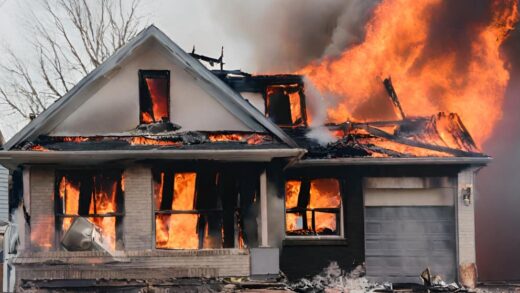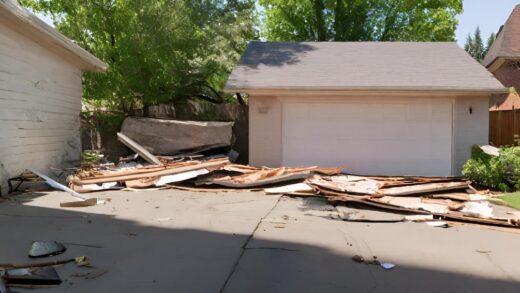Navigating insurance claims can be complex, and when disputes arise, it’s crucial to have a knowledgeable ally by your side. Texas insurance attorney specialize in handling insurance-related issues, from claim denials to policy disputes. In this guide, we’ll explore the vital role of Texas insurance attorneys, their expertise in insurance law, and how they can help policyholders protect their rights and secure fair compensation.
Understanding Natural Disasters and Their Effects
Types of Natural Disasters
Natural disasters come in various forms, each with its own unique characteristics and damage potential. Hurricanes bring strong winds and heavy rain, while earthquakes can shake the very foundation of your home. Floods can inundate entire neighborhoods, wildfires devour everything in their path, and tornadoes can reduce homes to rubble. Understanding the specific risks associated with your region is the first step in disaster preparedness.
The Widespread Impact
Natural disasters don’t discriminate; they can affect homes, communities, and infrastructure on a massive scale. The aftermath of such events can be devastating, resulting in extensive property damage, loss of possessions, and displacement. Having comprehensive insurance coverage is crucial, especially if you live in an area prone to natural disasters. It’s your safety net when the unexpected occurs.
Insurance Coverage for Natural Disasters
Homeowners Insurance
Most homeowners have a standard homeowners insurance policy, which typically provides coverage for damage caused by specific perils. These policies offer protection against risks like fire, theft, and vandalism. However, they may not cover damage resulting from natural disasters such as floods or earthquakes. It’s essential to review your policy carefully to understand its limitations and exclusions.
Specialized Coverage
In areas prone to specific natural disasters, such as coastal regions susceptible to hurricanes or earthquake-prone zones, specialized insurance policies are available. These policies cover the types of damage that standard homeowners insurance might exclude. For example, flood insurance protects against flood-related damage, while earthquake insurance provides coverage in the event of seismic activity. Assess your risks and consider adding specialized coverage to your policy if you reside in a high-risk area.
The Claims Process After a Natural Disaster
Contacting Your Insurance Company
When a natural disaster strikes, and your property is damaged, it’s essential to contact your insurance company as soon as it’s safe to do so. Promptly reporting the damage will initiate the claims process. Insurance companies often set up special disaster response teams to handle the surge in claims during catastrophic events.
Documenting Damage
Thorough documentation is crucial when filing a natural disaster insurance claim. Take clear photographs and videos of the damage, and maintain written descriptions of the destruction. This documentation will serve as evidence during the claims assessment, helping you substantiate your losses.
Working with Adjusters
Insurance adjusters play a vital role in the claims process. They assess the extent of the damage, evaluate repair or replacement costs, and determine the amount of compensation you’re entitled to. It’s important to cooperate with adjusters and provide them with all necessary documentation. However, keep in mind that adjusters work for the insurance company, so it’s essential to have your interests represented.
Common Challenges in Natural Disaster Claims
Policy Limitations
Insurance policies often have limitations, deductibles, and coverage exclusions that can impact the claims process. Understanding the terms of your policy is crucial, as it can affect the amount of compensation you receive. In some cases, disputes may arise over policy interpretations, leading to delays or claim denials.
Delayed Claims Processing
Natural disasters can overwhelm insurance companies with a high volume of claims. While insurers strive to process claims promptly, delays can occur. It’s essential to be patient, but also persistent in following up on your claim’s progress. Understand your policy’s provisions regarding claim processing times.
Tips for Policyholders
Preparedness Measures
One of the best ways to protect your home and loved ones is through preparedness. Develop a disaster preparedness plan that includes emergency supplies, evacuation routes, and a communication strategy. Make sure everyone in your household knows what to do in the event of a natural disaster.
Reviewing and Updating Coverage
Periodically review and update your insurance coverage to ensure it aligns with your changing needs and risks. Consult with an insurance agent to discuss your options and make informed decisions about your policy. In high-risk areas, consider specialized coverage to bridge any gaps in protection.
The Role of an Insurance Attorney
In situations where disputes arise, or you feel your insurance company is not acting in good faith, consulting with an insurance attorney is a wise choice. An insurance attorney specializes in insurance law and can provide invaluable guidance and representation. They can review your policy, negotiate with the insurance company on your behalf, and, if necessary, take legal action to ensure you receive fair compensation.
Conclusion
Understanding how insurance claims work in the aftermath of a natural disaster is essential for homeowners. Knowledge of your policy’s coverage, thorough documentation of damage, and prompt communication with your insurer are key elements in a successful claims process. Additionally, being prepared, reviewing your coverage, and considering specialized policies can provide added protection.
Remember that an insurance attorney can be a valuable ally if you encounter challenges during the claims process. Their expertise can help you navigate complex insurance issues and ensure that your rights as a policyholder are protected. Natural disasters are unpredictable, but with the right insurance coverage and knowledge, you can recover and rebuild your life after the storm.


